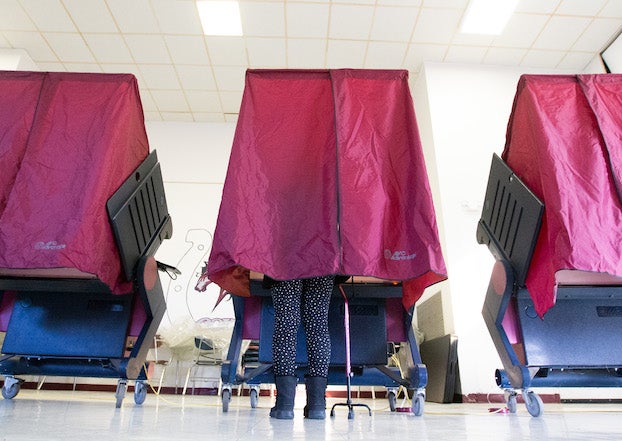Creating career pathways: BESE to expand work-based learning
Published 2:36 pm Monday, April 22, 2024

- Kayden Serie receives hands-on learning opportunities during an internship at Sasol’s Lake Charles Chemical Complex. (Special to the American Press)
Two policy changes expanding work-based learning initiatives in Louisiana have been unanimously approved by the Board of Elementary and Secondary Education.
BESE expanded the definition of work-based learning (WBL) initiatives and increased the value of those experiences — internships, apprenticeships — in the K-12 accountability system.
BESE member Kevin Berken, District 7, told the American Press the policy revisions are intended to draw focus to industry and technical education and make high school more inclusive for nontraditional students.
“As we know, college is not for every student and therefore placing emphasis on and allowing students the opportunity to proceed down the path of internships and apprenticeships, a dual enrollment for non-college bound students, makes school more relevant for many,” Berken told the American Press. “It elevates the value of career education and allows them to learn skills in high-value trades.”
One of the policy revisions altered the valuation of internships and apprenticeships in the state’s school and district accountability system. Students who complete an internship or WBL experience will earn an additional five points, up to 160 points. This change will be applied starting with the 2026 school performance scores.
Students who complete a Fast Forward-aligned apprenticeship — an education track that allows students to earn a high school diploma or associate’s degree or state-registered apprenticeship simultaneously — will earn the same amount of points as students who have earned an associate’s degree following the policy change as well.
The second change expanded the definition of WBL experiences to include structured on-the-job training as part of a registered apprenticeship.
BESE-approved WBL experience now includes cooperative education agreements between schools and employers that provide paid on-the-job training relating to a student’s technical studies, internships and structured on-the-job training.
The WBL experience is divided into 20 percent classroom time to develop “soft skills” — financial literacy and workplace communication — and 80 percent on-the-job instructional time.
The change also ensures students participating in internships receive compensation, lays out the WBL teacher requirements and “clarifies required classroom experience and job training components,” according to BESE.
Berken expressed excitement that BESE prioritized WBL initiatives. He believes the policy changes will “elevate Louisiana’s standing among the rest of the states.”
BESE President Ronnie Morris, District 6, said in a release that the decision was in response to Louisiana students’ requests to make school more relevant to daily life, especially for those who are on the career and technical path, that he hears when he works as a substitute teacher.
“BESE recognized the value of internships and apprenticeships with employer compensation as relevant learning experiences in the state’s accountability system, and these on-the-job experiences will pair well with high school financial literacy course requirements, benefiting students, employers and communities.”
BESE said in a release that the Louisiana Department of Education “studied successful WBL programs in other states and worked in partnership with the Louisiana business of workforce development communities” during the development of policy recommendations.
State Superintendent Cade Brumley said in a release that with the policy changes, the state is “elevating the value of career education” and granting students additional opportunities to graduate with “skills in high-value trades.”
“BESE’s actions will benefit students, our economy, and our state,” he said.
Morris said the board’s decision was made “alongside a bold commitment from the Louisiana business community.” The enhanced WBL policies will bolster the state’s future workforce and meet critical business needs, he said.
“Businesses are looking for skilled labor and are willing to invest in Louisiana students. Internships and Registered Apprenticeships not only benefit students by introducing them to workplace experiences and expectations but fortify the talent pipeline in our state as well. This leads to a more skilled homegrown workforce and increased economic development.”





